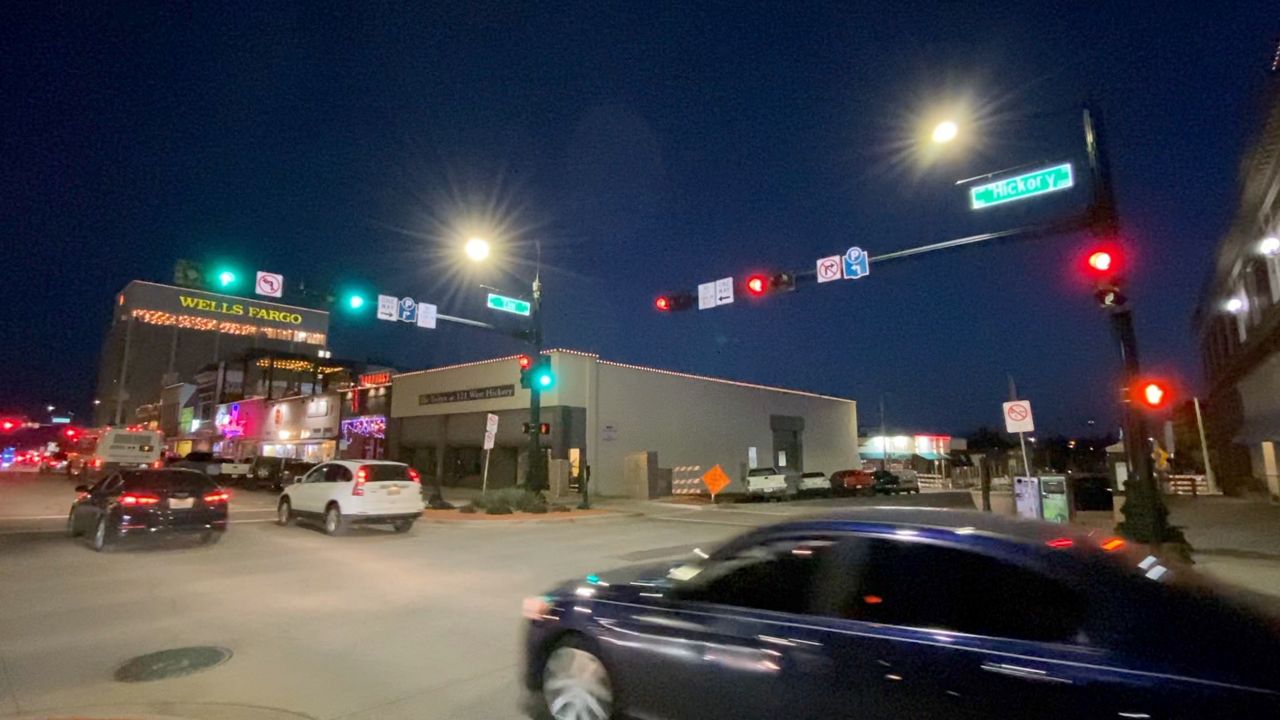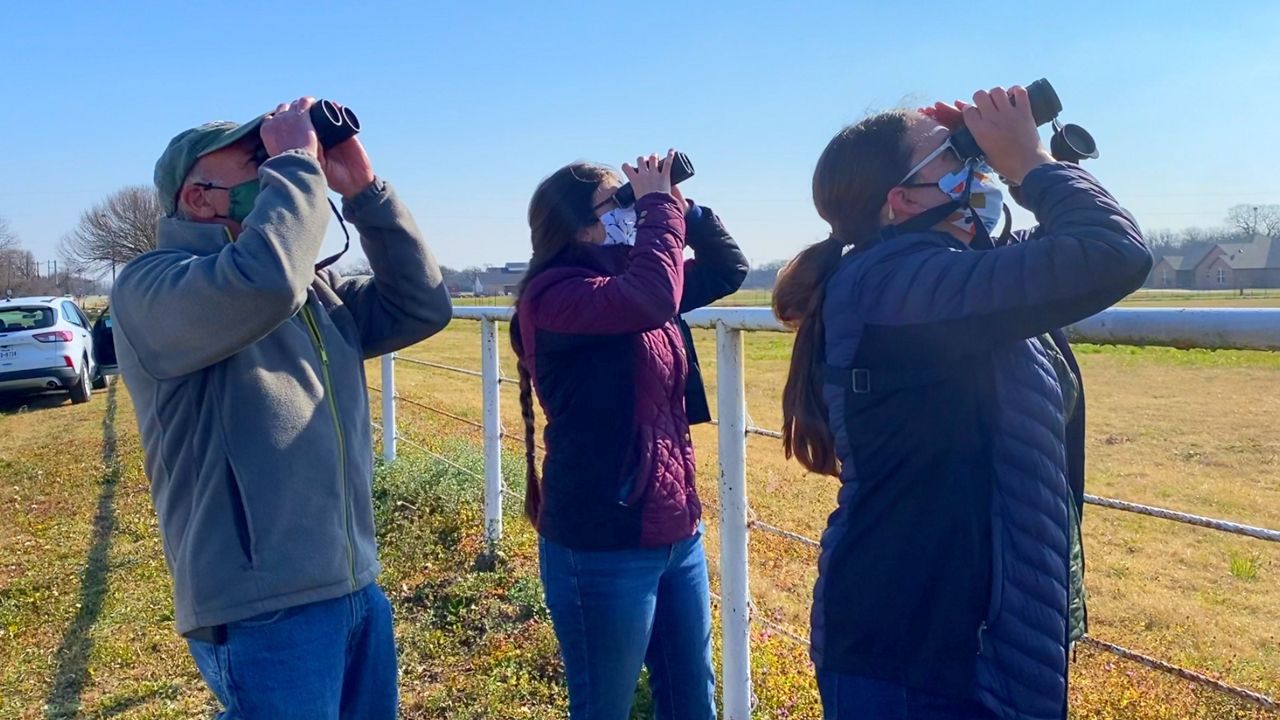DENTON, Texas — When wildlife ecologist Dr. Jim Bednarz learned of a $4 million project in Denton to upgrade thousands of street lights, he knew the seemingly bright idea could have a negative impact on migratory birds.
The project to switch Denton’s street lighting from older high-pressure sodium bulbs to longer lasting LED lights was passed by city council members in 2019. Crews with Denton Municipal Electric started replacing the lights in early 2020.
Bednarz knows all about birds and how humans affect them. He shares his passion for conservation as a senior lecturer teaching avian ecology among other subjects at the University of North Texas.
He recognizes the importance of street lighting and the role they play in reducing risks of night time accidents, discouraging crime, and securing residential streets, but says birds flying at night are naturally attracted to light and often cause them to lose their sense of direction.

“The birds that would be impacted by the lights would be migratory songbirds, passerine birds, because they migrate at night and use the stars for navigation,” Bednarz said.
He is a fan of songbirds and the way they benefit both the ecosystems they live in and humans. He says they’re responsible for dispersing seeds, pollinating plants and consuming copious amounts of insects like mosquitoes.
“We have to protect our endangered wildlife,” said Bednarz. “These are fascinating species of songbirds that provide us tremendous ecological services that make our lives better.”
When songbirds migrate, they can make trips of more than 300 miles at night. Bednarz says exhaustion from a long flight plus the distraction from the lights can cause them to run into windows and buildings.
It’s a phenomenon he says can already be seen around Denton.
“On the UNT campus, a lot of birds have been found dead near the Union and Discovery Park,” said Bednarz.
“The lighting issue is sort of an emerging issue,” he said. “We’ve just begun to realize that this could be a real problem for bird populations.”
He adds there’s research showing turning off the lights during certain hours, along with dimming the lights, could have a positive effect on the songbirds returning to their migration route.
According to Chris Lutrick, executive manager of operations for Denton Municipal Electric, there are more than 8,500 street lights throughout the city. He’s stated about 3,800 of the new LED lights have been replaced since February 2020.
Ryan Adams, director of public affairs for the City of Denton, says information is being gathered for a council discussion on the issue of the lights. He says the city does have the ability to dim the lights utilizing a control system.
“Upon request, the lights have been dimmed to 60%,” he said.
Bednarz says council members discussing the issue is a step in the right direction. He wants elected officials to understand that some of our developments have impacts on wildlife.
“If we appreciate our environment, we have to be aware our actions have consequences and could negatively impact ecosystems, and that could have repercussions on our own quality of life as well,” he said.

Bednarz and students are currently working on the UNT American Kestrel study, a project that involves studying the winter ecology of a small falcon, the American kestrel, that commonly winters in the North Texas region and, for unknown reasons, is exhibiting a widespread population decline in North America. Students trap, mark, and monitor the behavior and movements of these falcons throughout the winter in an effort to conserve the species.
If you have an interesting story or an issue you’d like to see covered, let us know about it. Share your ideas with DFW reporter Lupe Zapata: Lupe.Zapata@Charter.com



